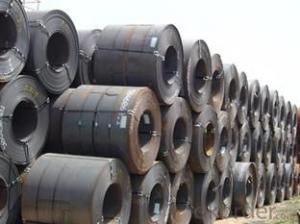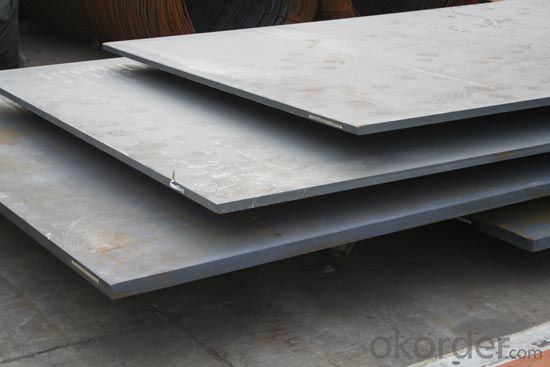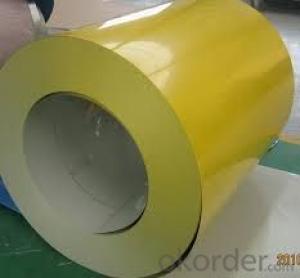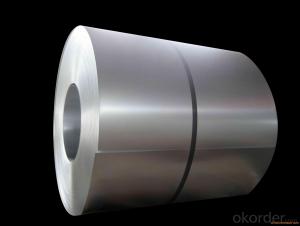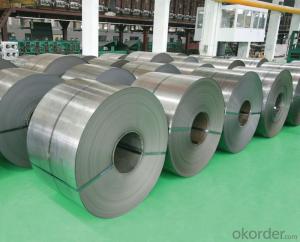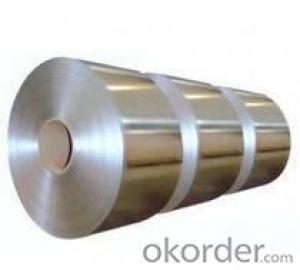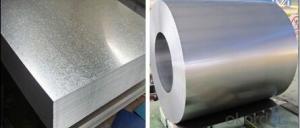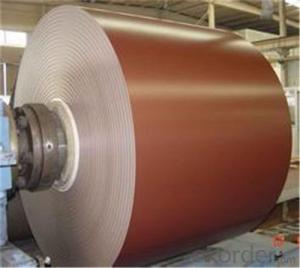Hot rolled steel sheets/coils
- Loading Port:
- China Main Port
- Payment Terms:
- TT OR LC
- Min Order Qty:
- -
- Supply Capability:
- -
OKorder Service Pledge
OKorder Financial Service
You Might Also Like
Product: | Hot Rolled Steel Coils/Sheets |
Material: | Q195,Q235,A36,SS400,S235JR,Q345,ST37-2, CCSB etc |
Standard : | JIS G3002 GB/T251B |
Technique: | hot rolled |
Thickness | 1.2mm to 200mm |
Tolerance of thickness: | :+/-0.03mm |
Width: | 750mm-2000mm |
Tolerance of width: | :+/-5.00mm (aiming to +/-2.00mm) |
Normal width: | 914mm, 1000mm, 1200mm, 1219mm, 1250mm,1500mm |
Length: | According to requirement |
Coil ID: | 508mm-610mm |
Coil Weight: | 10-25 Metric Tons |
Surface: | Black, Chromate, fingerprint resistant treatment, slight oiled or non-oiled, dry |
Port of Loading: | Tianjin/Shanghai port |
Packaging Details: | Standard export packing or according to the clients required |
Delivery Time | Within 30 days after received 30% deposit or workable L/C |
Payment Terms: | L/C,T/T |
|
|
- Q: What is the yield strength of steel coils?
- The yield strength of steel coils can vary depending on the specific grade and composition of the steel. However, the typical yield strength of steel coils ranges from 300 to 600 megapascals (MPa).
- Q: What are steel coils used for?
- Steel coils are used for a variety of applications, including manufacturing automobiles, construction materials, appliances, and machinery. They are also used in the production of pipes, electrical appliances, and packaging materials.
- Q: What are the different coil packaging machine configurations used for steel coils?
- There are various coil packaging machine configurations utilized for steel coils, each tailored to specific coil sizes, weights, and packaging needs. 1. The horizontal coil packaging machine is designed for smaller steel coils. It is typically equipped with a conveyor system that transports the coil horizontally throughout the packaging process. It may incorporate automatic coil centering, wrapping, and strapping features to guarantee secure and efficient packaging. 2. The vertical coil packaging machine is suitable for larger and heavier steel coils. It is designed to package coils in a vertical position and often includes a rotating arm or turntable for wrapping and securing the coil with strapping. Vertical machines have a higher throughput capacity and can handle coils of various sizes and weights. 3. The ring coil packaging machine is specifically designed for large and heavy steel coils. It comprises a rotating ring structure that surrounds the coil and moves up and down while wrapping and securing it with stretch film or other packaging material. Ring coil packaging machines are versatile, accommodating coils of different diameters and weights, making them suitable for various coil packaging requirements. 4. The eye-to-sky coil packaging machine is intended for steel coils that need to be packaged in an eye-to-sky orientation. It typically features a wrapping station that rotates the coil while applying stretch film or other packaging material. This configuration ensures proper protection and stability during transportation and storage. 5. The eye-to-horizontal coil packaging machine is designed for steel coils that need to be packaged in an eye-to-horizontal orientation. It includes a conveyor system that transports the coil horizontally while applying stretch film or other packaging material. Eye-to-horizontal machines can handle coils of different sizes and are designed to provide secure packaging for easy handling. In conclusion, the choice of coil packaging machine configuration depends on factors such as coil size, weight, packaging requirements, and production throughput. Different configurations offer distinct features and capabilities to ensure efficient and secure packaging of steel coils.
- Q: How are steel coils inspected for defects?
- To ensure the quality of steel coils meets required standards, various methods are used to inspect them for defects. Visual inspection is a common method, where trained inspectors examine the coil's surface for visible defects like cracks, scratches, or dents. This can be done through direct observation or with the help of magnifying tools. Another method is magnetic particle inspection, which detects surface and near-surface defects like cracks or voids. Here, a magnetic field is applied to the coil, and magnetic powder is spread on the surface. If any defects are present, the powder will be drawn to them, making them visible to the inspector. Ultrasonic testing is also commonly employed to inspect steel coils for defects. It involves transmitting high-frequency sound waves into the coil and analyzing the reflected waves. Any deviations in the sound waves can indicate the presence of defects like cracks or voids within the coil. Eddy current testing is another method used to detect defects in steel coils. It works by using electromagnetic induction to generate eddy currents within the coil. Any changes in these currents caused by defects in the material are detected and analyzed by the inspector. Finally, in some cases, destructive testing is performed on steel coils. This involves taking a sample from the coil and subjecting it to tests such as tension or bend testing. These tests evaluate the mechanical properties of the steel and indirectly indicate the presence of defects. Overall, a combination of visual inspection, magnetic particle inspection, ultrasonic testing, eddy current testing, and potentially destructive testing is used to inspect steel coils for defects. These methods ensure that any defects are identified and addressed, guaranteeing the delivery of high-quality steel coils to customers.
- Q: What are the common problems faced during steel coil production?
- During the production of steel coils, several common issues may arise. One of the most frequently encountered problems is the breakage or damage of the coils. This can happen as a result of improper handling or transportation, leading to cracks or fractures. To minimize the risk of coil breakage, it is crucial to adhere to proper handling procedures. Another issue that often arises is coil slippage. This occurs when the coils are not securely stacked or stored, causing them to shift or slide. Coil slippage can cause damage to the coils and potentially lead to accidents or injuries. Therefore, it is essential to have adequate storage systems in place to prevent such slippage. Furthermore, corrosion is a prevalent problem in steel coil production. Corrosion can be caused by exposure to moisture, air, or other corrosive substances. It can result in the deterioration of the steel, reducing its strength and durability. To address this issue, it is necessary to implement effective corrosion prevention measures, such as proper coating or storage techniques. Coil quality issues are another challenge faced in steel coil production. These problems can include inconsistencies in thickness, width, or surface defects on the coils. Various factors, such as improper rolling processes, equipment malfunctions, or material defects, can contribute to these quality problems. Regular quality checks and inspections should be carried out to promptly identify and resolve any issues. Moreover, problems related to coil handling and loading may also arise during steel coil production. Improper lifting or loading techniques can lead to coil damage, resulting in deformations or even accidents. Proper training and education of employees on appropriate handling and loading procedures are crucial to prevent such problems. In conclusion, steel coil production can encounter various challenges, ranging from coil breakage and slippage to corrosion and quality issues. Implementing proper handling, storage, and quality control measures is indispensable in minimizing these problems and ensuring the production of high-quality steel coils.
- Q: I saw this really pretty ring online and it was made of steel. Is this a good ring? If I were to wash my hands with it on, would it rust and turn my finger green?
- Steel rust is brown not green! Very much expected to be of one type of stainless steel, and you should have no problem.
- Q: How are steel coils used in the production of automotive suspension systems?
- Steel coils are used in the production of automotive suspension systems as they provide the necessary support and flexibility for the vehicle's suspension. These coils are typically used in the form of coil springs, which absorb shocks and vibrations from the road surface, ensuring a smooth and comfortable ride for the driver and passengers. The steel coils are designed to withstand the weight of the vehicle while maintaining their shape, allowing for proper suspension movement and control.
- Q: I was watching a documentary on the samurai vs the European knight. It said that the when Japan was being invaded by the (cant remember) they needed a new weapon. The enemies armor made iron swords useless. While steel swords broke when in combat. So to combat this the Japanese made a hybrid sword. They used a special mold that made the swords back iron while the part that makes contact with the enemy was steel. Also the sword was curved so it increased its armor and cutting power. This revolutionary design made the the sword stronger. The iron back made it not break while the steel edge made it cut through the enemies armor. I want to know how iron is stronger than steel, and how steel can cut better than iron.
- Yes because metal alloys are comparatively more strong than pure metal.The worst thing is that iron gets rusted whereas steel does not.And the skyscrapers are made of steel buddy , iron is not used in them.
- Q: I have an old classical guitar, which uses nylon strings. ive never really liked the sound produced by the nylon, so im curious if you can use a classical guitar with acoustic guitar steel strings. thanks!
- NO ! NO! NO! Do not put steel strings on a classical guitar!! The increased tension can actually damage the guitar by causing the top to warp and can eventually pull the bridge right off of the guitar! I have seen it happen more than once! Ignore the other post, they are wrong! Classical guitars are designed to use nylon strings only!
- Q: How are steel coils inspected for chemical composition?
- Steel coils are inspected for chemical composition through a process called spectroscopic analysis. This involves taking a small sample from the coil and subjecting it to various tests, such as X-ray fluorescence or optical emission spectroscopy, to determine the precise elemental composition of the steel. This ensures that the steel meets the required specifications and quality standards.
Send your message to us
Hot rolled steel sheets/coils
- Loading Port:
- China Main Port
- Payment Terms:
- TT OR LC
- Min Order Qty:
- -
- Supply Capability:
- -
OKorder Service Pledge
OKorder Financial Service
Similar products
Hot products
Hot Searches
Related keywords
